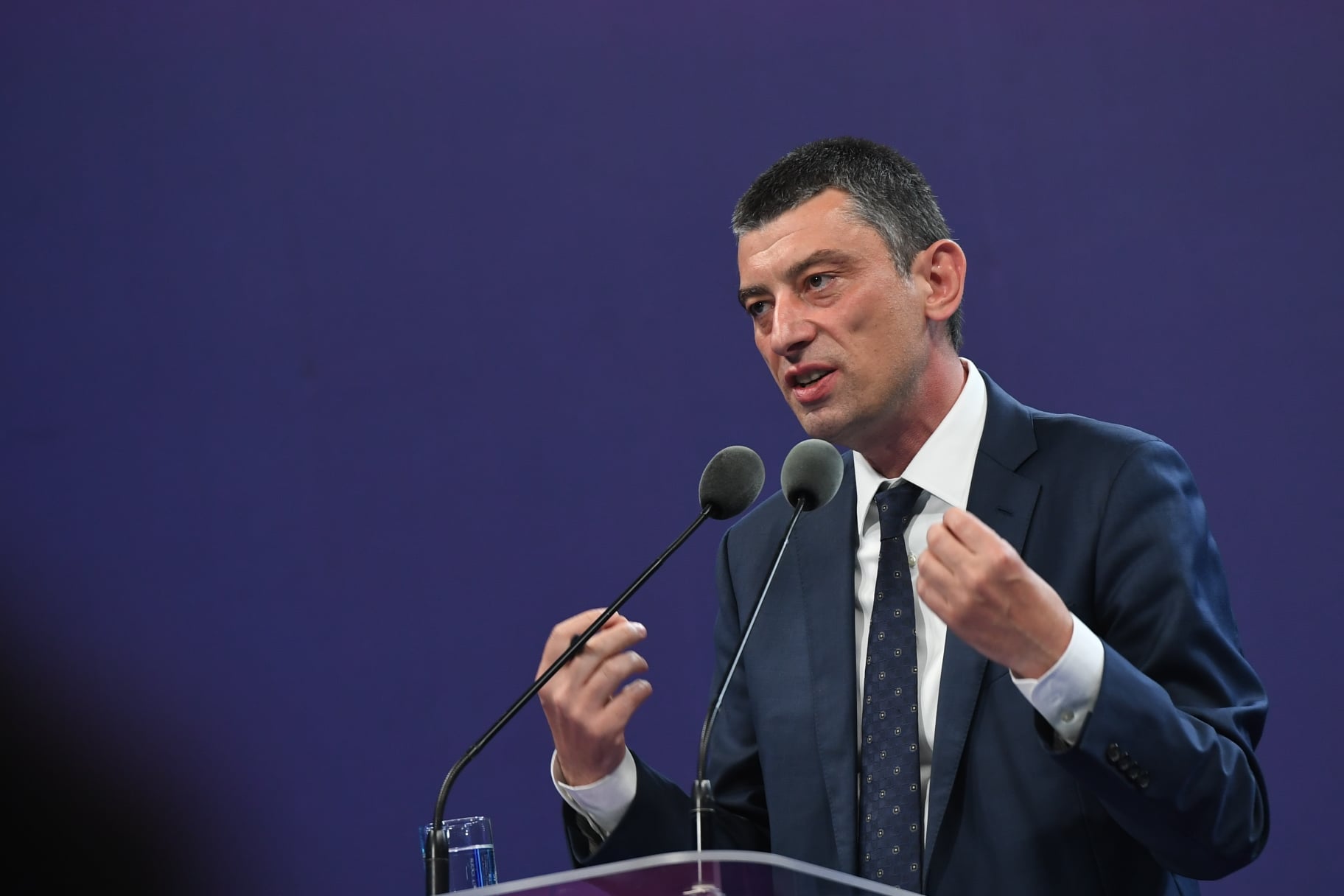Giorgi Gakharia, former prime minister and now leader of the opposition For Georgia party, who is currently in exile, faces up to 13 years in prison as Georgian prosecutors charged him over his 2019 actions during “Gavrilov’s Night” and the Chorchana checkpoint developments, when he was serving as Interior Minister.
Prosecutor General Giorgi Gvarakidze said the authorities will seek pre-trial detention for Gakharia, who left Georgia months ago as the Georgian Dream government increasingly pressured him over decisions that the ruling party had once endorsed.
Authorities launched a probe into the Chorchana tensions – linked to the Interior Ministry’s 2019 placement of a police checkpoint along the Tskhinvali occupation line – this June, and about a month later, revived the largely shelved investigation into “Gavrilov’s Night,” the violent dispersal of protesters in June 2019.
The charges came about a week after authorities announced the prosecution of eight other opposition leaders – most of whom are already in jail – for “crimes against the state.”
Prosecutor General’s Briefing
At a November 12 press briefing, Georgia’s Prosecutor General Giorgi Gvarakidze announced the launch of a criminal prosecution against former PM Giorgi Gakharia over his actions in two separate cases: the violent dispersal of the June 20–21, 2019 protest rally in Tbilisi, known as “Gavrilov’s Night,” and, several months later, the installation of a police checkpoint near the Chorchana village, close to the Tskhinvali occupation line.
In both instances, Gakharia served as Georgia’s interior minister before his promotion to prime minister. Gvarakidze said the charges concern “organizing the intentional infliction of severe bodily harm against two or more persons” in connection with the dispersal of the “Gavrilov’s Night” protest and “abuse of official powers” related to the developments near Chorchana. Gakharia, who is now in exile in Germany, faces up to 13 years in prison if found guilty.
First charge relates to the June 20–21, 2019, protest outside Parliament in Tbilisi, when thousands gathered to protest after Russian lawmaker Sergey Gavrilov addressed the legislature from the Parliament Speaker’s chair. Police used tear gas and rubber bullets to clear demonstrators, injuring more than 240 people, including journalists and officers.
Citing a May 2024 European Court of Human Rights (ECtHR) ruling that found Georgia failed to properly investigate the crackdown, Gvarakidze said the case was reopened and that investigators concluded Gakharia, then interior minister, was responsible for ordering the excessive use of force.
“Then Interior Minister Giorgi Gakharia, disregarding instructions and legal provisions, ordered the employees of the Special Tasks Department to use special means simultaneously and in parallel, without any warning or allowing peaceful demonstrators to leave the area,” Gvarakidze said, adding the order led to intentional bodily harm to citizens. Two people lost their eyes from rubber bullets.
The second charge concerns Gakharia’s August 2019 decision to install a police checkpoint near the village of Chorchana, close to the occupation line with the Russian-occupied Tskhinvali region.
According to the Prosecutor General, “disregarding the authority of the National Security Council, without coordinating with the Prime Minister of Georgia, and without notifying the State Security Service or the European Union Monitoring Mission in Georgia,” Gakharia unilaterally ordered a police checkpoint.
Gvarakidze said the move “intentionally exceeded his official powers, resulting in a substantial violation of the lawful interests of society and the state.”
Gakharia defended his actions in both cases during two hearings of the disputed Parliament’s temporary investigative commission, which, led by Tea Tsulukiani, examined alleged crimes by former officials. He attended the first hearing in person and appeared online from Germany for the second.
Also Read:
- 14/06/2025 – Gakharia in Prosecution Crosshairs Over 2019 Chorchana Tensions
- 12/11/2019 – Prosecutor’s Office Grants Victim Status to Three Persons Injured in June 20-21 Dispersal
- 28/10/2019 – Court Refuses to Grant Victim Status to People Injured in June 20-21 Dispersal
- 21/06/2019 – Unrests in Tbilisi Continue till Sunrise
This post is also available in: ქართული
